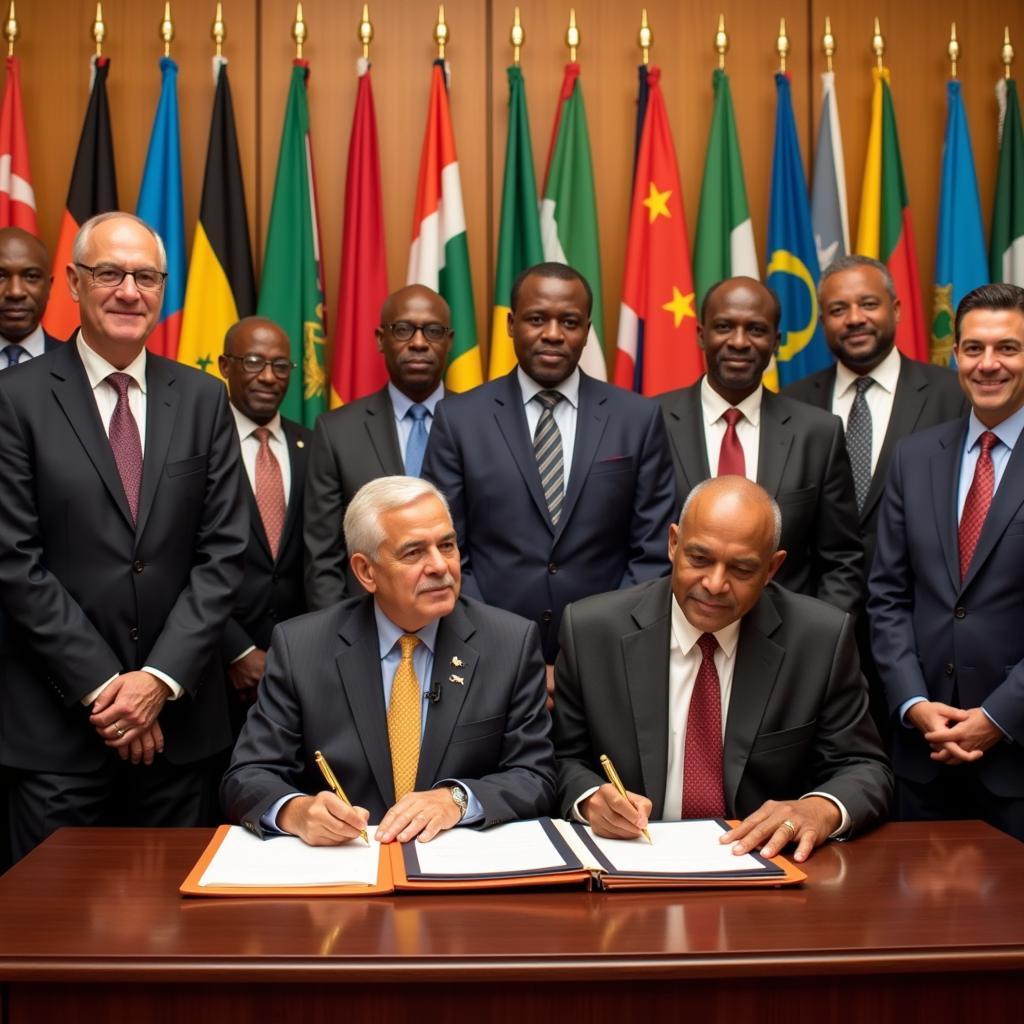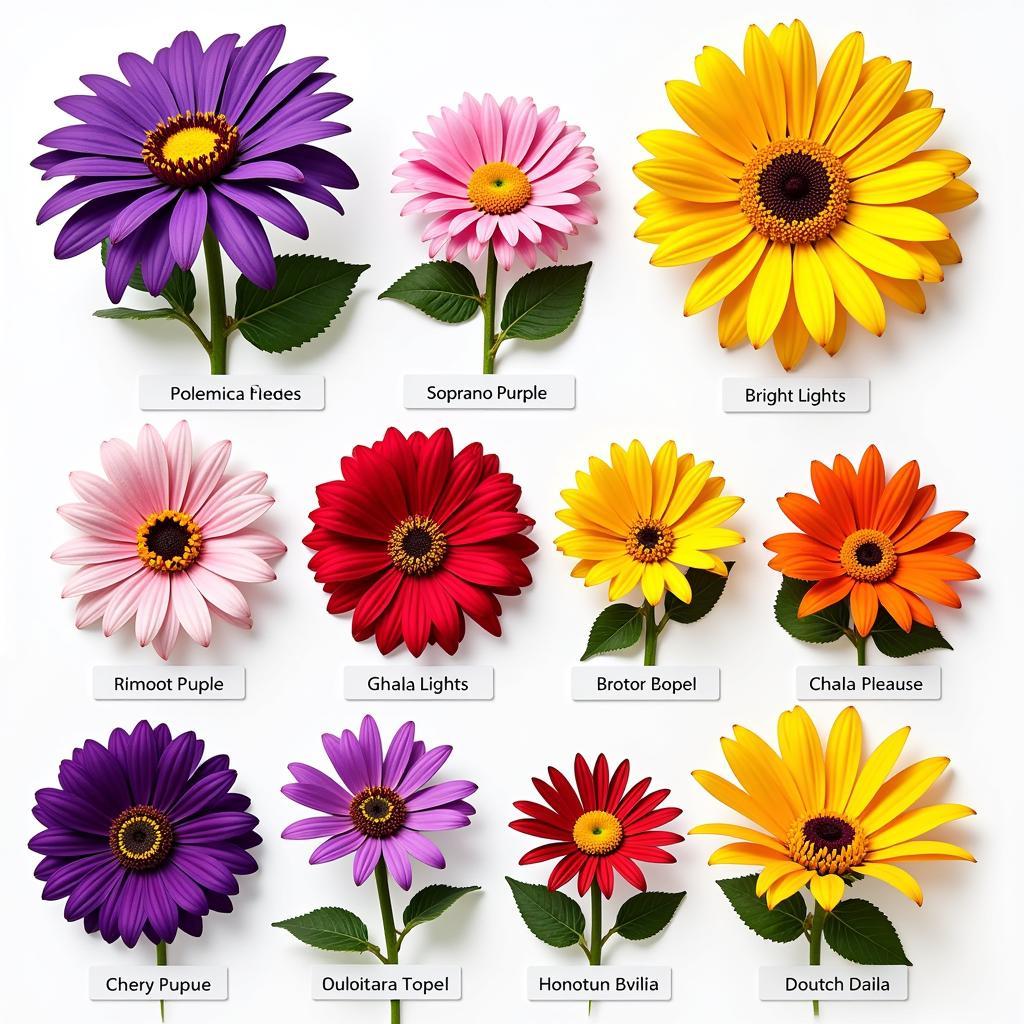Unveiling the Mysteries of African Voodoo
African Voodoo, a term often shrouded in misunderstanding and misrepresentation, represents a complex and diverse tapestry of spiritual traditions deeply rooted in the African diaspora. This article delves into the heart of these practices, exploring their origins, rituals, and significance within various African communities. We’ll uncover the truth behind the myths and examine the profound impact of voodoo on the cultural landscape. More than just a religion, voodoo is a way of life for millions, shaping their worldview, social interactions, and artistic expressions. Right after the transatlantic slave trade, voodoo spread across the globe, significantly influencing spiritual traditions in the Americas and the Caribbean.
West African traditions heavily influence the practice of voodoo. For instance, in Benin, voodoo is not just a religion; it’s a cultural cornerstone. Voodoo, far from the sensationalized depictions in popular culture, embodies a rich spiritual heritage with deep historical roots. It represents a connection to ancestors, a celebration of life, and a profound respect for the natural world. Its practices vary considerably across different regions and communities, reflecting the diverse cultural landscape of Africa.
Exploring the Origins and Evolution of African Voodoo
Voodoo’s origins can be traced back to the West African kingdoms of Dahomey (present-day Benin) and surrounding areas. The term “voodoo” itself derives from the Fon language word “vodun,” meaning “spirit” or “deity.” With the transatlantic slave trade, these spiritual traditions were carried across the Atlantic, adapting and evolving in new cultural contexts. In the Americas, particularly Haiti, Cuba, and Brazil, voodoo blended with indigenous beliefs and Christian influences, giving rise to distinct variations.
Understanding the historical context is crucial to appreciating the resilience and adaptability of African voodoo. West African voodoo has shaped the spiritual landscape of several countries. It’s crucial to separate the historical reality from the often-sensationalized portrayals.
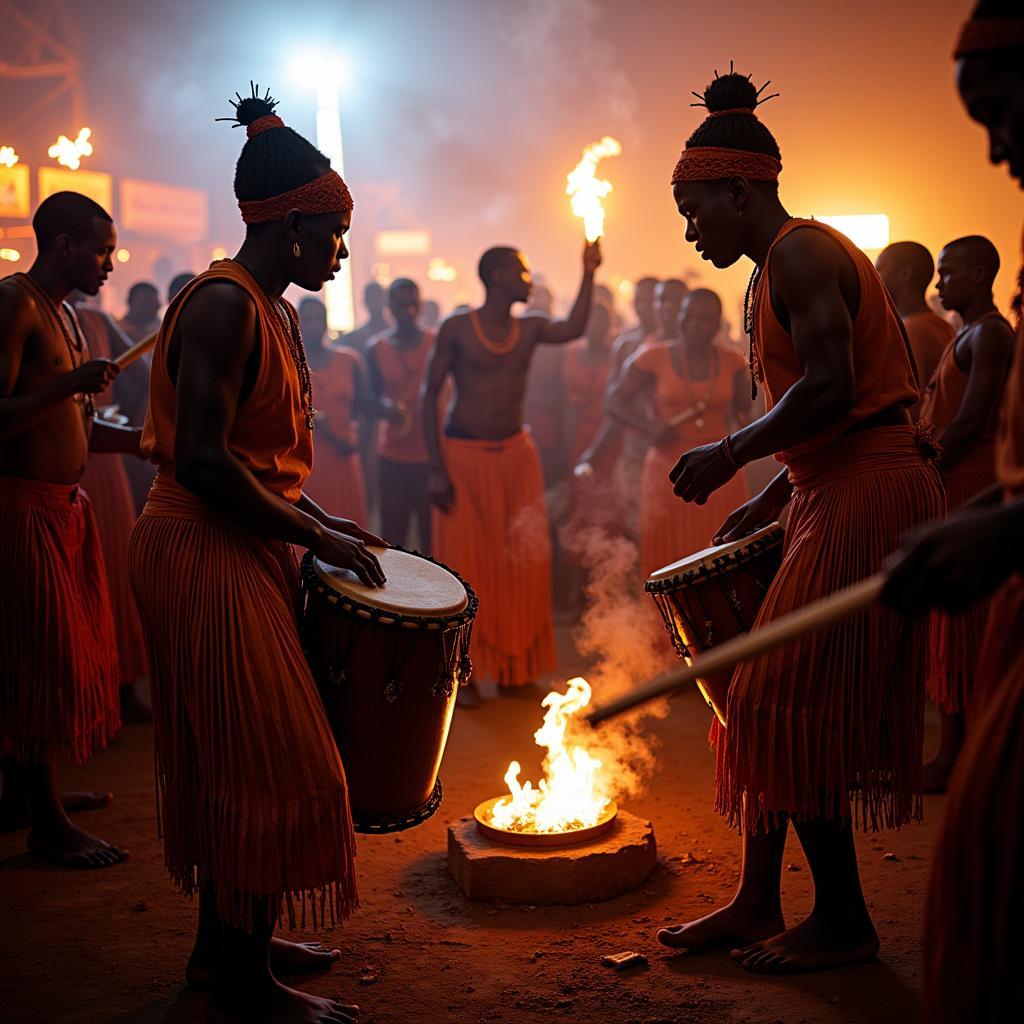 African Voodoo Rituals in Benin
African Voodoo Rituals in Benin
The Core Beliefs and Practices of African Voodoo
At the core of African voodoo lies a belief in a supreme creator God, often referred to as Mawu or Bondye. This supreme being is considered too distant for direct interaction, and thus, communication occurs through intermediaries known as loa or spirits. These spirits represent different aspects of nature, human experience, and ancestral energies. Voodoo practitioners engage in various rituals, including ceremonies, offerings, and divination, to connect with these spirits and seek their guidance.
These rituals often involve music, dance, and elaborate costumes, creating a vibrant and immersive experience. The use of herbs, symbols, and specific objects plays a significant role in these practices, each carrying symbolic meaning and purpose. The interconnectedness of the spiritual and physical realms is a central tenet of voodoo.
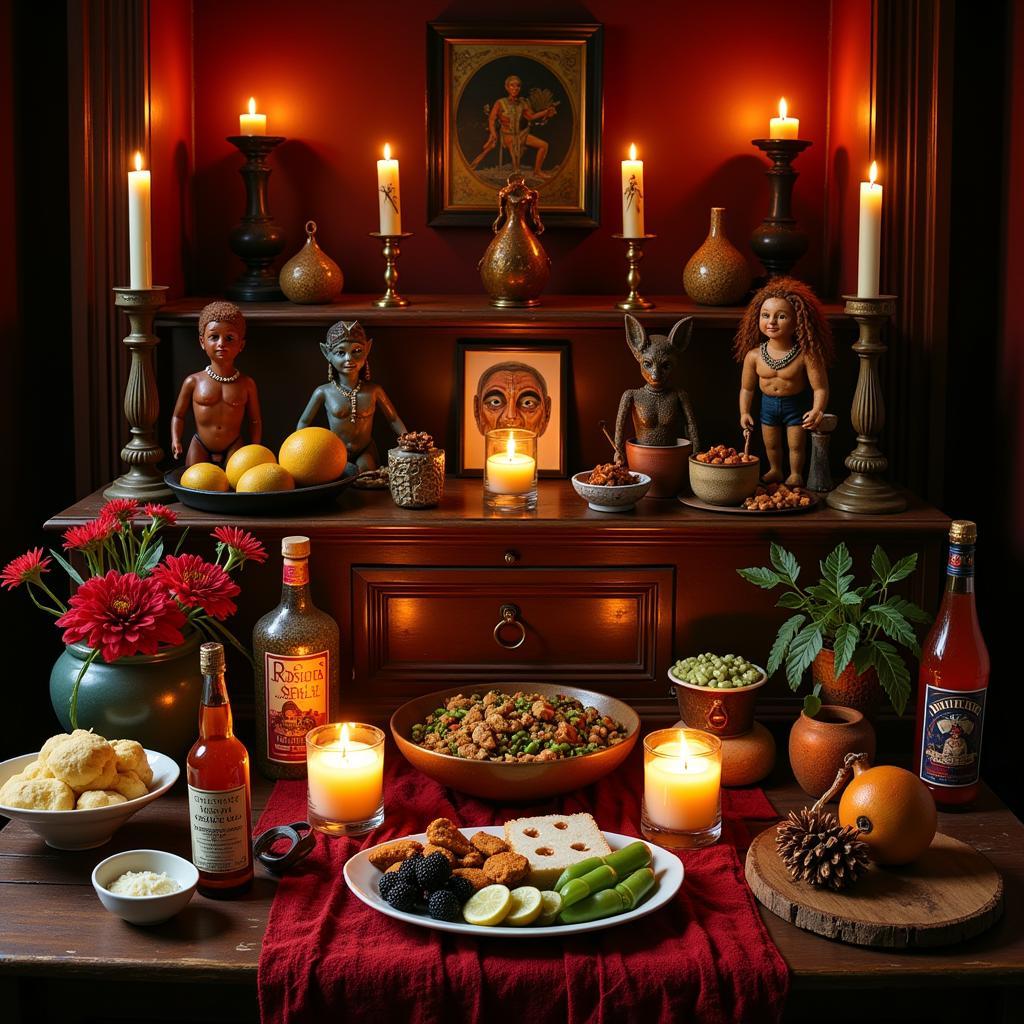 African Voodoo Altar and Symbols
African Voodoo Altar and Symbols
African Voodoo: Dispelling the Myths and Misconceptions
Popular culture often portrays African voodoo through a distorted lens, associating it with black magic, curses, and malevolent practices. African blackmagic vodoo is a misleading and harmful stereotype. The reality is far more nuanced. Voodoo, like many other spiritual traditions, encompasses both positive and negative aspects. While some practitioners may specialize in healing and protection, others may focus on addressing more challenging situations.
It’s important to differentiate between authentic voodoo practices and the sensationalized depictions that perpetuate harmful stereotypes. Voodoo, at its core, is a spiritual path that emphasizes connection, community, and respect for the forces of nature. “Voodoo is not about evil; it’s about balance,” says Dr. Adeola Ogunmola, a prominent scholar of African religions. “It’s about acknowledging the power of the spiritual world and seeking harmony within it.”
African Voodoo’s Influence on Art, Music, and Culture
African country Benin is a prime example of voodoo’s influence on culture. Voodoo’s influence on African art, music, and culture is undeniable. From vibrant masks and sculptures depicting the loa to the rhythmic drumming and chanting that accompany ceremonies, voodoo’s presence permeates artistic expression. The stories and myths associated with voodoo provide a rich source of inspiration for storytelling, dance, and other forms of cultural expression.
Voodoo has also played a significant role in shaping social structures and community dynamics in many African societies. It provides a framework for understanding the world, navigating social relationships, and addressing both individual and collective challenges. The continued vibrancy of voodoo traditions reflects its enduring relevance in the lives of millions.
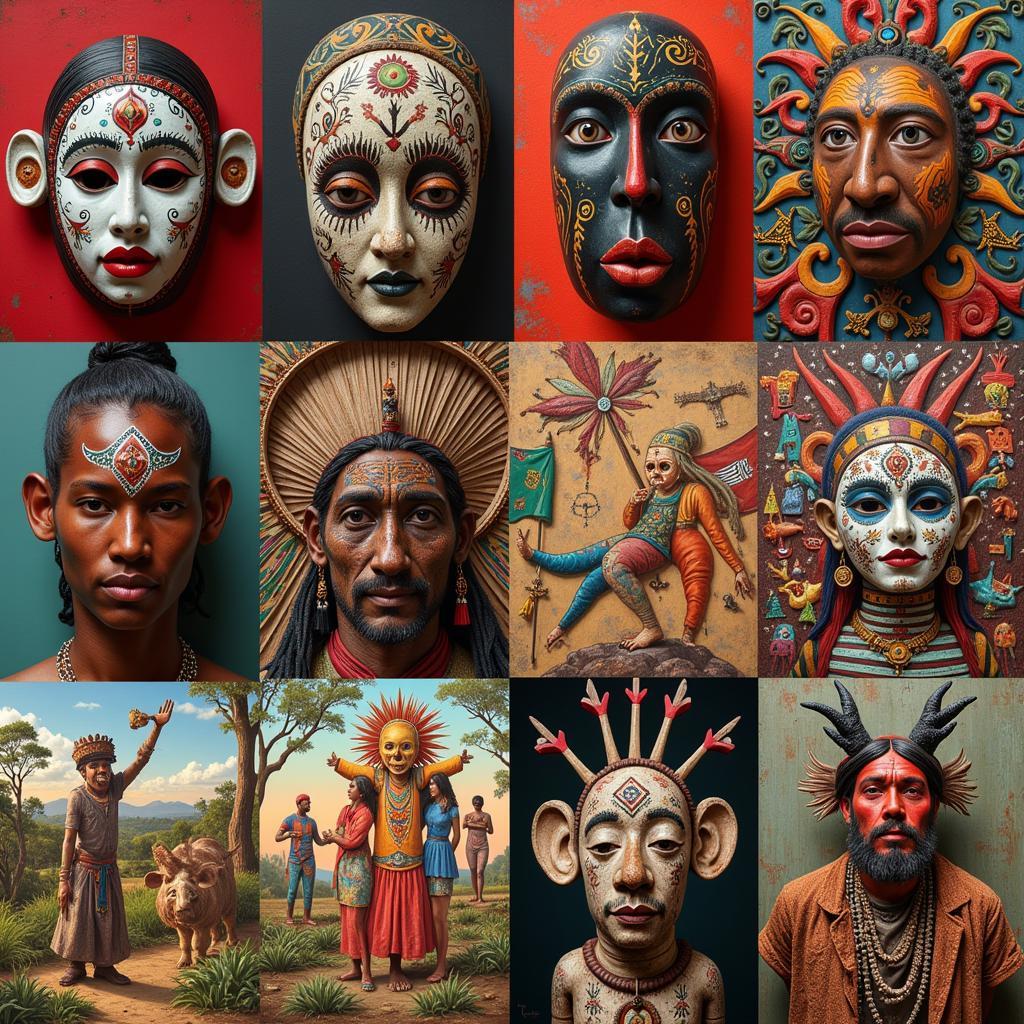 African Voodoo-Influenced Art
African Voodoo-Influenced Art
Conclusion: Appreciating the Rich Tapestry of African Voodoo
African voodoo is a multifaceted and dynamic spiritual tradition with deep historical roots. Understanding its origins, beliefs, and practices requires moving beyond the stereotypes and embracing the complexity of its cultural significance. From its West African origins to its adaptations in the diaspora, voodoo continues to shape the lives and artistic expressions of countless individuals. Exploring African voodoo is an invitation to discover a rich tapestry of spiritual traditions, cultural expressions, and profound connections to the ancestral past and the natural world.
FAQ
-
What is the main difference between West African voodoo and its variations in the Americas? The core beliefs remain similar, but the Americas’ variations often incorporate indigenous and Christian influences.
-
Are there different types of voodoo spirits? Yes, the loa represent various aspects of nature, human experience, and ancestral energies.
-
Is voodoo always about black magic? No, that’s a harmful stereotype. Voodoo encompasses a wide range of practices, including healing, protection, and seeking guidance.
-
How does voodoo influence African art? It provides inspiration for masks, sculptures, music, dance, and storytelling.
-
Where can I learn more about authentic voodoo practices? Reputable academic sources and cultural institutions dedicated to African studies can provide valuable insights.
African american occultists sometimes draw inspiration from voodoo traditions. Understanding the different forms of voodoo across the diaspora can offer further insight. African cultural celebrations are often intertwined with spiritual practices like voodoo, demonstrating its profound impact on community life.
We understand you might have more questions about African Voodoo and related topics. Here are some other questions that you might find helpful:
- What role do rituals play in voodoo practices?
- How has voodoo adapted to modern times?
- Are there any ethical considerations surrounding the study and representation of voodoo?
When you need assistance or have more questions, please don’t hesitate to contact us. You can call us at +255768904061, email us at kaka.mag@gmail.com, or visit our office located in Mbarali DC Mawindi, Kangaga, Tanzania. We have a 24/7 customer support team ready to assist you.
